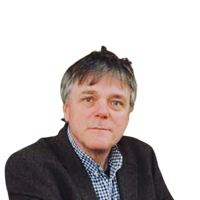Acupuncture
Marcus undertaken post graduate training in Western Medical Acupuncture (also known as Dry Needling) with the British Medical Acupuncture Society and can offer safe and effective acupuncture treatments alongside his conventional osteopathic approach where appropriate.
The WMA technique uses acupuncture needles inserted into specific areas of the body that may be associated with tender points known as 'trigger points'. These points are commonly located in regions of acute or chronic musculoskeletal pain.
Acupuncture has been shown to stimulate the nerves in skin and muscle, and can produce a variety of effects. We know that it increases the body's release of natural painkillers (endorphin and serotonin) in the pain control pathways of both the spinal cord and the brain. This modifies the way pain signals are received, but acupuncture does much more than reduce pain; it has a beneficial effect on health with patients often reporting an improved sense of overall wellbeing after treatment.
When attending for therapy, Marcus will assess your individual case and tailor the treatment to your individual needs. It is impossible to give more than a general idea of what treatment might involve. Typically, fine needles are inserted through the skin and left in position briefly, sometimes with manual or electrical stimulation. The number of needles varies but may be only two or three. The key thing to remember is that acupuncture should not be a painful experience! Treatment might be once a week to begin with, then at longer intervals as the condition responds. A typical course of treatment lasts 4 to 8 sessions.
Despite some treatment points coinciding with traditional Chinese acupuncture points, WMA does not use any of the diagnostic or treatment philosophy associated with traditional Chinese medicine. Dry needling and WMA is a discrete treatment system normally used in addition to or as an adjunctive method of pain management along side other musculoskeletal therapies such as osteopathy.
Marcus does not perform acupuncture to babies, infants or young children.
Information About Blood Donation
Patients who have received acupuncture are still able to give blood providing they meet certain criteria. The National Blood Service guidelines regarding acupuncture are outlined below;
Attention
Blood donation following acupuncture
Patients who have received acupuncture are still able to give blood providing they meet certain criteria. The National Blood Service guidelines are explained here.
National Blood Service (NBS) Guidelines
1. Patients must not donate (obligatory):
- If the condition for which treatment was given is not acceptable to the NBS.
- If it is less than 4 months since treatment was completed for that condition.
2. Patients may donate (discretionary):
- If acupuncture has been performed under
the NHS. - If acupuncture has been performed outside the NHS by a qualified Healthcare Professional registered with a statutory body listed below;
Statutory Bodies:
- General Osteopathic Council (GOsC)
- General Medical Council (GMC)
- General Dental Council (GDC)
- Nursing and Midwifery Council (NMC)
- Health and Care Professions Council (HPC)
For further details please see the eligibility to give blood section of the National Blood Transfusion Service Website

Marcus Webb
Osteopath (GOsC Registered)
Naturopath (GNC Registered)
Nutritional Therapist (NNA Registered)
Medical Acupuncturist (BMAS Registered)
Marcus qualified in 1988 from the British College of Osteopathic medicine (formally the British College of Naturopathy and Osteopathy) and has been in full time practice since graduation.
He has a special professional interest in the nutritional management of osteoporosis and chronic pain disorders using medical acupuncture.
His holistic approach extends to the incorporation of nutritional therapy within the naturopathic context to support health and wellbeing.
Marcus does not include cranial osteopathy nor paediatric osteopathy within his scope of practice.